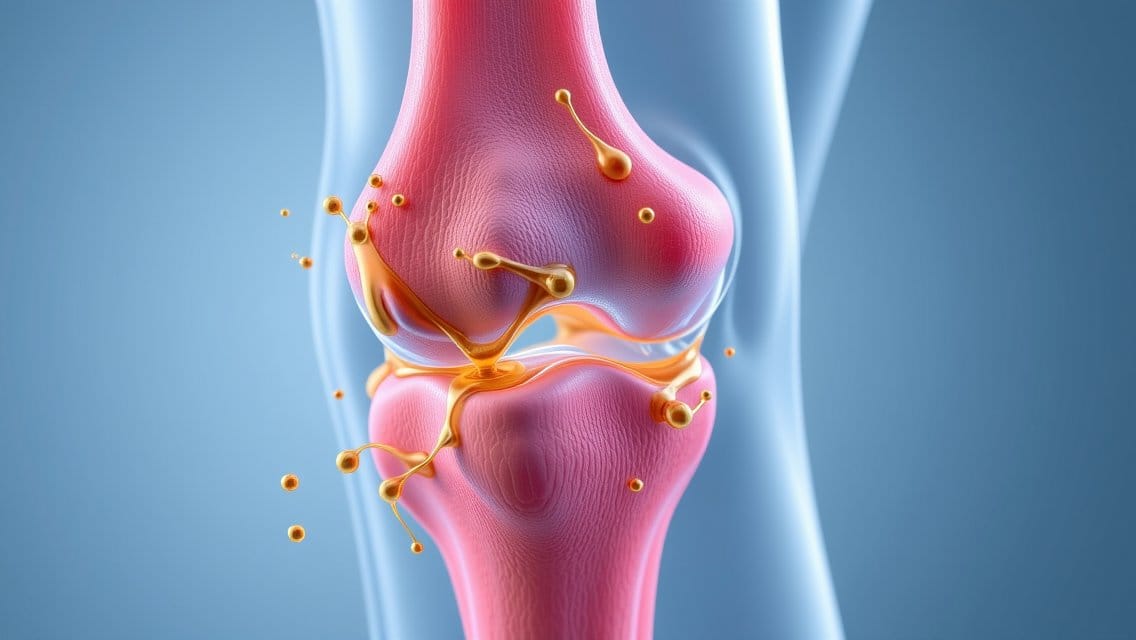Understanding the Science of Collagen Supplements for Joint and Skin Health
Collagen, the most abundant protein in the human body, is often touted as the secret to youthful skin, strong joints, and overall vitality. But what exactly is collagen, and why has it become such a buzzword in the health and wellness world? Collagen supplements are now everywhere, with promises to improve skin elasticity, reduce joint pain, and even support gut health. But how do they work, and is there science backing these claims?
Let’s dive into the science behind collagen supplements and explore how they can benefit both your skin and joints.
What is Collagen?
Collagen is a structural protein that makes up a significant part of our connective tissues, including skin, cartilage, bones, tendons, and ligaments. Think of collagen as the body’s scaffolding—it provides strength, structure, and elasticity. As we age, the body’s natural collagen production declines, leading to visible signs of aging like sagging skin and joint discomfort.
In fact, by the age of 30, the body’s collagen production begins to drop by about 1% per year. This decrease is a key factor in the formation of wrinkles, reduced skin elasticity, and joint pain. Thankfully, collagen supplements have emerged as a popular way to replenish this vital protein.
The Science Behind Collagen Supplements
Collagen supplements are typically derived from animal sources, such as bovine (cow), marine (fish), or chicken collagen. They come in various forms—powder, capsules, or even liquid—and are usually broken down into smaller peptides, which are easier for the body to absorb and utilize.
These collagen peptides work by stimulating the body to produce more collagen on its own. Here’s how it happens: When you consume collagen supplements, the amino acids in the peptides travel through your digestive system and are absorbed into your bloodstream. From there, they are delivered to the skin, joints, and other areas where collagen is needed, helping to boost collagen production.
Studies have shown that collagen supplementation may help improve the appearance of skin elasticity, reduce the appearance of wrinkles, and promote joint health.
Collagen and Skin Health
One of the most well-known benefits of collagen supplements is their positive impact on skin health. As we age, the skin loses collagen, leading to wrinkles, dryness, and loss of elasticity. This is why many people turn to collagen supplements to restore their youthful glow.
Research suggests that collagen peptides can increase skin hydration and elasticity. A study published in the Journal of Medical Nutrition & Nutraceuticals found that women who took collagen supplements for eight weeks saw a noticeable improvement in their skin’s hydration, elasticity, and overall appearance. Another study in the Journal of Dermatology found that collagen supplementation could reduce wrinkles and promote skin regeneration.
But how does this work? Collagen helps form a structure beneath the skin that supports its elasticity and firmness. By supplementing with collagen, you may be able to slow down or even reverse some of the visible effects of aging. Plus, collagen supplements often contain other ingredients that support skin health, such as vitamin C, hyaluronic acid, and biotin, which further enhance skin rejuvenation.
Collagen and Joint Health
In addition to its skin benefits, collagen plays a crucial role in maintaining joint health. As we age, the collagen in our joints begins to break down, which can lead to conditions like osteoarthritis and joint pain. This is where collagen supplements can help.
Studies have shown that collagen supplementation can help reduce joint pain and improve joint function. One study published in the Current Medical Research and Opinion found that athletes who took collagen supplements experienced a significant reduction in joint pain and stiffness. Another study in the International Journal of Medical Sciences found that collagen supplementation helped improve joint mobility and decreased inflammation in people with osteoarthritis.
Collagen helps maintain the integrity of cartilage, the tissue that protects your joints. By supplementing with collagen, you’re essentially providing your body with the building blocks it needs to repair and regenerate this critical connective tissue. This can help reduce pain, improve mobility, and prevent further joint damage.
Types of Collagen
There are several types of collagen, each of which serves a different purpose in the body. The most common types found in supplements are:
- Type I Collagen: The most abundant type in the body, found in skin, tendons, bones, and ligaments. It’s the primary collagen used in most skin and joint health supplements.
- Type II Collagen: Primarily found in cartilage, making it especially beneficial for joint health.
- Type III Collagen: Found alongside type I in the skin, muscles, and blood vessels. It’s often included in supplements aimed at improving skin elasticity and reducing wrinkles.
When choosing a collagen supplement, look for one that contains type I for skin health and type II for joint health. Some high-quality collagen supplements combine these types to address both concerns.

How to Choose the Right Collagen Supplement
Not all collagen supplements are created equal. When choosing a collagen supplement, consider the following factors:
- Source: Look for supplements made from high-quality, grass-fed, or wild-caught sources, as they tend to be more sustainable and free from harmful chemicals.
- Hydrolyzed Collagen: Choose a product that contains hydrolyzed collagen, as this process breaks down the collagen into smaller peptides, making it easier for the body to absorb.
- Added Ingredients: Some collagen supplements include additional nutrients like vitamin C, which aids collagen absorption, or hyaluronic acid, which further supports skin hydration.
- Reviews and Research: Look for products backed by clinical research and positive customer reviews to ensure you’re getting a safe, effective product.
Conclusion: The Key to Healthier Skin and Joints
Collagen supplements have taken the wellness world by storm, and for good reason. The science is clear—collagen plays an essential role in maintaining healthy skin and joints. As we age, collagen production declines, leading to visible signs of aging and discomfort in the joints. Collagen supplements offer an easy, effective way to replenish this vital protein and improve overall health.
Whether you’re looking to boost skin elasticity, reduce wrinkles, or support joint health, collagen supplements could be the key to feeling and looking your best at any age.







Comments